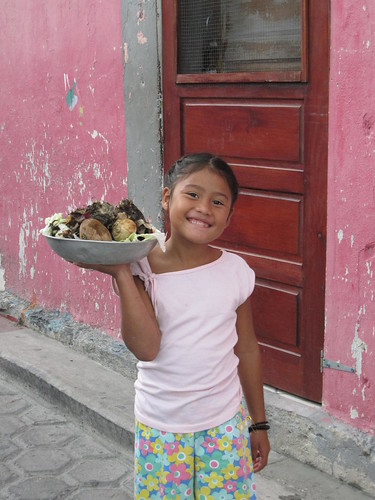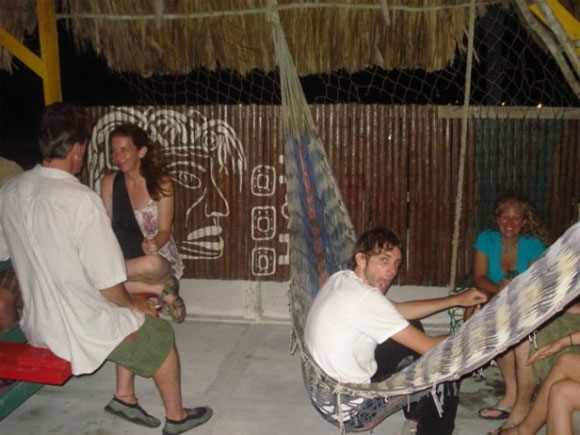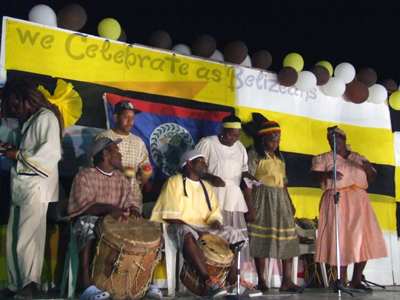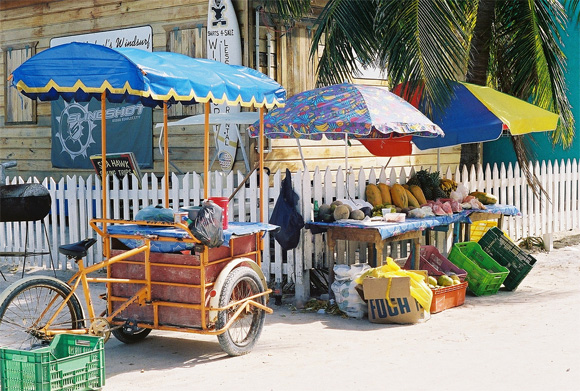
The first inhabitants of Belize were the Maya and Caribe Indians. Belize was a part of the great Mayan empire which stretched through Guatemala, southern Mexico and parts of Honduras and El Salvador. Though the history of the Maya can be traced back for over 4000 years, the Classic period of more advanced Mayan civilization began around the 3rd century AD and reached its height between the 6th and 8th centuries. By the 14th century it was in serious decline. When the Spanish arrived in the 16th century, many of the Mayan cities were deserted.
The Spanish considered Belize a backwater and although the Spanish 'owned' Belize, they did not rule it. The lack of effective government — and the safety afforded by the reef — attracted English and Scottish pirates during the 17th century. When piracy became passé, many of the pirates began working in the logging trade.
Belize was British by tradition and sympathy by the time that a British force routed the Spanish armada off St George's Caye in 1798, delivering Belize from Spanish rule. In 1862, Great Britain declared Belize to be the colony of British Honduras.
The start of the 20th century was tough for Belize, as British mismanagement fuelled claims for independence. After WWII, Belize's economy weakened, and independence agitators got their wish partly fulfilled in 1962, when self-government was granted. Democratic political parties and institutions were formed. The government decided to build a new capital at Belmopan in 1970, after Hurricane Hattie all but destroyed Belize City in 1961.
Independence became a reality in September 1981 when British Honduras officially became Belize, a member of the British Commonwealth. Guatemala, which had territorial claims on Belize, threatened war in 1972, but British troops were stationed in Belize to make sure the dispute remained purely diplomatic. In 1992, a new Guatemalan government recognized Belize's territorial integrity. The British garrison was withdrawn in 1994; Belize now has a standing army of only a few hundred soldiers.
Over the past 20 years Belizeans have been struggling to reintegrate their native culture. As with many colonized areas, diminished emphasis is placed on pre-existing traditions, arts and culture. Instead, imported ideas and products are seen to be of more value than what is produced domestically. Many Belizeans have had to leave the country to make their fortunes, sending money home to support a family.
Culture
Belize is officially English-speaking, but the Creoles (the largest ethnic group) speak their own colorful dialect as well as English. Spanish is the main language in the north and some towns in the west. You may also hear Mayan, Chinese, Mennonite German, Lebanese, Arabic, Hindi and Garífuna (the language of the Garinagu people of Stann Creek district) being spoken.
The majority of Belize's population is Roman Catholic, but British influence has created a sizable and varied Protestant congregation, including German Swiss Mennonites. The Mayan practice of Catholicism is a fascinating fusion of shamanist and Christian ritual.
Belize has never really developed a national cuisine. Its cooking borrows elements from the UK, the USA, Mexico and the Caribbean. The traditional staples are rice and beans. These are often eaten with chicken, pork, beef, fish or vegetables. Coconut milk and fried plaintain add a tropical flavour.















































No comments:
Post a Comment